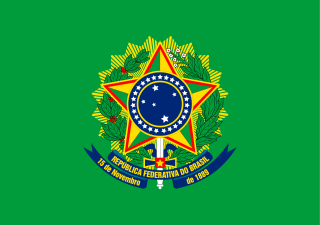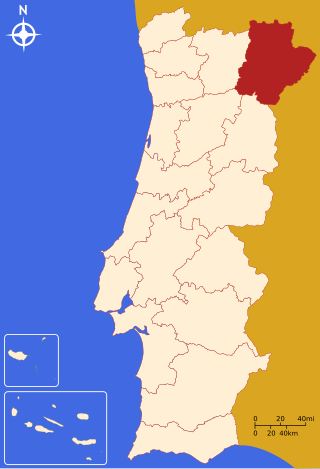
Local government is a generic term for the lowest tiers of governance or public administration within a particular sovereign state.

Politics in Portugal operates as a unitary multi-party semi-presidential representative democratic republic, whereby the Prime Minister of Portugal is the head of government, and the President of Portugal is the non-executive head of state which, although it is a somewhat ceremonial figure, has some significant political powers they exercise often. Executive power is exercised by the Government, whose leader is the prime minister. Legislative power is primarily vested in the Assembly of the Republic, although the government is also able to legislate on certain matters. The Judiciary of Portugal is independent of the executive and the legislature. The President exerts a sort of "moderating power", not easily classified into any of the traditional three branches of government.

The Districts of Portugal are the most important first-level administrative subdivisions of continental Portugal. Currently, mainland Portugal is divided into 18 districts.

The president of Brazil, officially the president of the Federative Republic of Brazil or simply the President of the Republic, is the head of state and head of government of Brazil. The president leads the executive branch of the federal government and is the commander-in-chief of the Brazilian Armed Forces.

Portugal is a unitary state with delegated authority to three levels of local government that cover the entire country:

The Council of Ministers is the main collective decision-making body of the Government of Spain, and it is exclusively composed of the Prime Minister, the deputy prime ministers and the ministers. Junior or deputy ministers such as the Secretaries of State are not members of the Council. The Monarch may also chair the Council when needed on the invitation of the Prime Minister.
The Cabinet of Ministers of Ukraine, commonly referred to as the Government of Ukraine, is the highest body of state executive power in Ukraine. As the Cabinet of Ministers of the Ukrainian SSR, it was formed on 18 April 1991, by the Law of Ukrainian SSR No.980-XII. Vitold Fokin was approved as the first Prime Minister of Ukraine.

Bragança District is a traditional political division of Portugal, in the northeast corner bordering on Spain, covering 7.4% of the nation's continental landmass. As of the 2011 census the total resident population was 136,252, making it the second-least populous district in Portugal, only surpassing Portalegre District.

The Government of Portugal, also referred to as the Government of the Portuguese Republic, the Portuguese Government or simply the Government, is one of the four sovereignty bodies of the Portuguese Republic, together with the President of the Republic, the Assembly of the Republic and the courts. It is both the body of sovereignty that conducts the general politics of the country and the superior body of the Portuguese public administration.

The Ministry of the Interior (MIR) is a department of the Government of Spain responsible for public security, the protection of the constitutional rights, the command of the law enforcement agencies, national security, immigration affairs, prisons, civil defense and road traffic safety. Through the Undersecretariat of the Interior and its superior body, the Directorate-General for Internal Policy, the Ministry is responsible for all actions related to ensuring political pluralism and the proper functioning of electoral processes.

The Republic of Cameroon is a decentralized unitary state.

The Ministry of the Presidency (MPR) was the department of the Government of Spain that, from 1974 to 2023, assured the link between the different Ministries and the Prime Minister and it was responsible for the relations between the Government and the Parliament. This department also supported The Crown in the exercise of its functions.

The politics of France take place within the framework of a semi-presidential system determined by the French Constitution of the French Fifth Republic. The nation declares itself to be an "indivisible, secular, democratic, and social Republic". The constitution provides for a separation of powers and proclaims France's "attachment to the Rights of Man and the principles of National Sovereignty as defined by the Declaration of 1789".

The Presidency of the Council of Ministers is the administrative structure which supports the Prime Minister of Italy. It is thus the Italian equivalent of the Prime Minister's Office. It contains those departments which carry out duties invested in the office of the Prime Minister. Duties invested in the Italian executive government generally are not administered by the Presidency, but by the individual ministries.

The Ministry of Finance or Ministry of Treasury (MH) is the department of the Government of Spain responsible for planning and carrying out the government policy on public finance and budget. It applies and manages the regional and local financing systems and the provision of information on the economic-financial activity of the different Public Administrations.

The General State Administration is one of the Public Administrations of Spain. It is the only administration with powers throughout the national territory and it is controlled by the central government.

In Spain, apart from the Central Administration, the central government has a Peripheral Administration. This administration is composed of all those decentralized government services, and they are coordinated by the Government Delegations, which are headquartered in the Spanish regions' capitals. Likewise, this delegations exercise its powers through sub-delegations, headquartered in the provinces and insular directorates, headquartered in some islands. In total, there are 19 government delegations, 44 sub-delegations and 7 insular directorates.

Gustavo Henrique Rigodanzo Canuto is a Brazilian engineer and politician, former Minister of Regional Development.
The government of Afghanistan, officially called the Islamic Emirate of Afghanistan and informally known as the Taliban government, is the central government of Afghanistan, a unitary state. Under the leadership of the Taliban, the government is a theocracy and an emirate with political power concentrated in the hands of a supreme leader and his clerical advisors, collectively referred to as the Leadership. The Leadership makes all major policy decisions behind closed doors, which are then implemented by the country's civil service and judiciary. As Afghanistan is an Islamic state, governance is based on Sharia law and Pashtunwali, which the Taliban enforces strictly through extensive social and cultural policies.
The Ministry of Infrastructure (MInfra) (Portuguese: Ministério da Infraestrutura) was a cabinet-level federal ministry in Brazil. It was a body of the direct administration of the Brazilian state, responsible for national traffic and transport policies (air, rail, road and waterway, in addition to airport and port infrastructure). The body succeeded the Ministry of Transport, having received the new designation and the attributions related to traffic with the election of Jair Bolsonaro to the Presidency of Republic. These were the responsibility of the extinct Ministry of Cities until then. The regimental structure of the ministry is established by Decree 9.676/19.

















